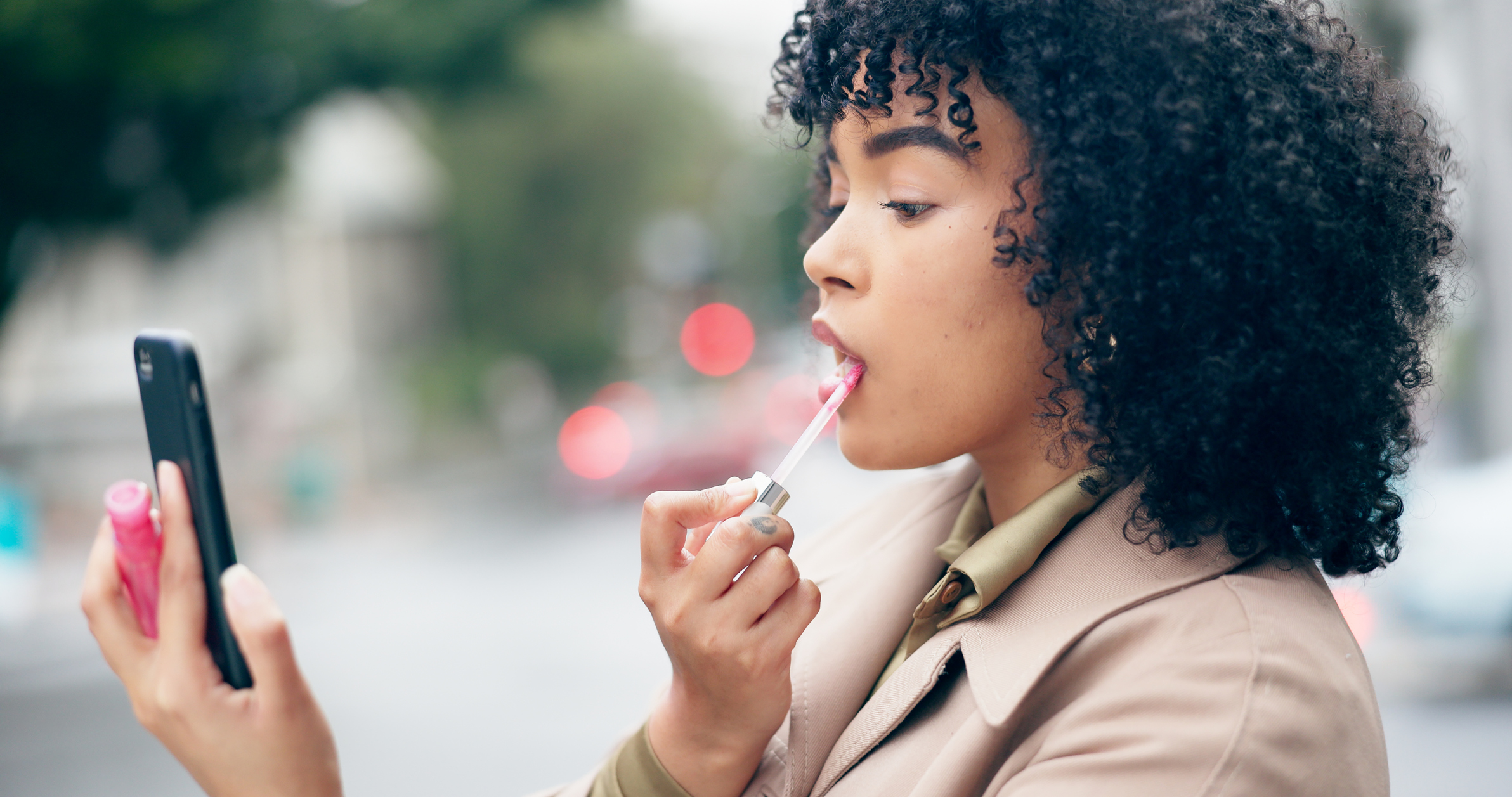Investing in cosmetics: How TikTok tweens and beauty queens are helping lipstick stocks
Could these cosmetic and luxury stocks deliver you gorgeous returns? Kalpana Fitzpatrick looks at the beauty brands and cosmetic stocks worth adding to your portfolio as they continue to grow among TikTok stars and beauty obsessed teens


Get the latest financial news, insights and expert analysis from our award-winning MoneyWeek team, to help you understand what really matters when it comes to your finances.
You are now subscribed
Your newsletter sign-up was successful
Want to add more newsletters?

Twice daily
MoneyWeek
Get the latest financial news, insights and expert analysis from our award-winning MoneyWeek team, to help you understand what really matters when it comes to your finances.

Four times a week
Look After My Bills
Sign up to our free money-saving newsletter, filled with the latest news and expert advice to help you find the best tips and deals for managing your bills. Start saving today!
I’ve often thought about switching careers to be a dermatologist - apologies to those who I have lectured about the daily benefits of sunscreen.
I remain committed as a financial journalist, and I can't help wondering if investors are missing out on opportunities that may come with so-called cosmetic stocks - dubbed lipstick stocks?
As many lipstick users will tell you, there’s always money for lipstick. Lipstick is known to be recession proof and in fact, the so-called lipstick index can be used to determine the economic health of a country when lipstick sales go up but consumers rein in their spending elsewhere.
MoneyWeek
Subscribe to MoneyWeek today and get your first six magazine issues absolutely FREE

Sign up to Money Morning
Don't miss the latest investment and personal finances news, market analysis, plus money-saving tips with our free twice-daily newsletter
Don't miss the latest investment and personal finances news, market analysis, plus money-saving tips with our free twice-daily newsletter
In 2018, the value of the cosmetics market worldwide was $508bn, reaching $676bn in 2023. It is projected to total $716bn by the end of 2024 and then $758bn by the end of 2025, data site Statista shows.
There’s no denying, it’s growing. We’ve all seen the queues of children piling themselves into Space NK or Sephora to buy premium skincare products or make-up, spending hundreds of pounds. And you know it's extreme when threads ranting about the ridiculous queues of children start appearing on Mumsnet.
Those with daughters may be nodding in agreement.
Should you buy cosmetic stocks?
I do not have a daughter, but if I did, I'd certainly be buying stocks in some of her favourite brands rather than spending the money just buying products.
Consumer behaviour is a good indication of how well a company will do - in other words, if you want to know which stock to buy (a question I am often asked), then the answer is close to home - where are you spending your money?
If you’re pouring hundreds into a brand, why not own some of it?
We see patterns over and over again. Apple is the perfect example - when everyone rushed out to buy the latest iPhone, the smart consumer purchased the stock first.
According to Nasdaq, someone who put $1,000 in Apple in 2012, would have $9,298 in 2022. Read more about Apple on our article - Where will Apple be in 5 years?
I’m not suggesting cosmetic stocks are heading the same way at the same speed, and in fact beauty stocks have seen a dip. But, in a future where new Space NKs and Sephoras are popping up at shopping malls, with preppy teens, frustrated parents and TikTok users lining up daily, you could say the dip is a blip and cosmetics stocks may well help your portfolio glow.
Here are some cosmetic and beauty stocks and funds worth considering.
Is L'Oréal worth it?
Let’s start here with the fact that the richest woman in the world is Francoise Bettencourt Meyers, who has the largest stake in L'Oréal (LSE: 0NZM), one-third of which she inherited from her mother. She is the first woman ever to hit a $100bn fortune.
In L'Oréal's latest annual report, the beauty brand reported a year of double-digit growth in 2023.
CEO Nicolas Hieronimus said the brand was optimistic about the outlook for the beauty market and looking into the future, it will have beauty tech at its very core to fuel further growth.
“Beauty tech will shape our industry and enable us to further strengthen our leadership. It will allow us to know our consumers ever-better, to bring them ever-more impactful and sustainable products and services and to become ever-sharper in our execution,” he said in the company’s annual results.
L'Oréal shares were introduced on the Paris Stock Market on 8 October 1963 and over a period of 5 years, the stock has seen a 61.57% increase.
The stock has also received support from FundSmith’s Terry Smith who told The Telegraph in March he thought L'Oréal was one of the best companies in the world and described L'Oréal as a leading cosmetic company with healthy returns on capital, strong profit margins and revenue growth as well as a strong ESG strategy.
Smith also cites L'Oréal’s distribution in China, which has been better than other cosmetic companies.
L'Oréal is one of the top-10 holdings in the Fundsmith Equity Fund, which is also one of the most purchased funds by private investors each month. It is also cited as one of the 'granola stocks' driving the European equity markets.
Ulta Beauty
Ulta Beauty (NASDAQ: ULTA) is the largest beauty retailer in the US with over 1,385 stores across 50 states.
While the stock took a dip in the first half of the year, down -16.98% in the last six months, it has gone up 10.69% over five years.
In its latest annual report, Ulta Beauty reported net sales increased 9.8% to $11.2 billion, and comparable sales increased 5.7% compared to fiscal 2022.
Its operating profit increased 2.4% to $1.7bn, or 15% of sales, and diluted earnings per share increased 8.4% to $26.03.
CEO David Kimbell said: “The US beauty category has a strong track record of consistent growth due to a high level of consumer engagement. Since the end of the pandemic, the beauty category has experienced unprecedented growth, driven by compelling newness and innovation, evolving trends, including a stronger connection between beauty and wellness, and the pervasive utilization of social media.”
Kimbell said he was “optimistic about the strength and resiliency of the beauty category”.
“While we expect the category will remain healthy, we believe annual growth will moderate in 2024 as we lap three years of extraordinary growth.”
Estée Lauder
While Fundsmith’s Terry Smith has favoured L’Oreal over Estée Lauder (NYSE: EL) after he sold his stake in the company following a lack of growth in China, it can be argued the brand is making waves in India and shouldn’t be dismissed just yet. The recent wedding of Anant Ambani, son of the richest man in Asia, is also fuelling interest in India - see our article on Anant Ambani's net worth.
Estée Lauder's recent collaboration with Indian designer Sabyasachi for limited edition lipsticks has taken the brand to a wider audience. And this week, the brand introduced the second edition of Beauty&You in partnership with beauty retailer Nykaa to help discover, spotlight and propel the next generation of entrepreneurs.
“With a higher degree of consumer awareness than ever and an influx of options unlike anything that the market has seen, India represents an exciting opportunity for the global beauty ecosystem,” Shana Randhava, senior vice president, new incubation ventures at Estée Lauder, said.
Estée Lauder’s stock has struggled, down 46.8% - but is it posed for growth?
Forbes estimates Estee Lauder’s valuation to be $155 per share, reflecting around a 20% upside from its current levels of $130. The forecast is based on four times forward sales, aligning with the stock’s average over the last two years.
Amundi S&P Global Luxury UCITS ETF
If you want some exposure to a range of luxury-good companies rather than individual shares, the Amundi S&P Global Luxury UCITS ETF (Milan: GLUX) is worth a look. It holds around 80 luxury-goods stocks from the US and Europe.
It aims to track the S&P Global Luxury index. Its top holding is currently Hermes International, best known for leather bags and specifically the investable Birkin - but it is also popular for Hermes Beauty, with lipsticks that every handbag wants.
Over the last five years, the ETF is up 55.5%.
Get the latest financial news, insights and expert analysis from our award-winning MoneyWeek team, to help you understand what really matters when it comes to your finances.
Kalpana is an award-winning journalist with extensive experience in financial journalism. She is also the author of Invest Now: The Simple Guide to Boosting Your Finances (Heligo) and children's money book Get to Know Money (DK Books).
Her work includes writing for a number of media outlets, from national papers, magazines to books.
She has written for national papers and well-known women’s lifestyle and luxury titles. She was finance editor for Cosmopolitan, Good Housekeeping, Red and Prima.
She started her career at the Financial Times group, covering pensions and investments.
As a money expert, Kalpana is a regular guest on TV and radio – appearances include BBC One’s Morning Live, ITV’s Eat Well, Save Well, Sky News and more. She was also the resident money expert for the BBC Money 101 podcast .
Kalpana writes a monthly money column for Ideal Home and a weekly one for Woman magazine, alongside a monthly 'Ask Kalpana' column for Woman magazine.
Kalpana also often speaks at events. She is passionate about helping people be better with their money; her particular passion is to educate more people about getting started with investing the right way and promoting financial education.
-
 Should you buy an active ETF?
Should you buy an active ETF?ETFs are often mischaracterised as passive products, but they can be a convenient way to add active management to your portfolio
-
 Power up your pension before 5 April – easy ways to save before the tax year end
Power up your pension before 5 April – easy ways to save before the tax year endWith the end of the tax year looming, pension savers currently have a window to review and maximise what’s going into their retirement funds – we look at how
